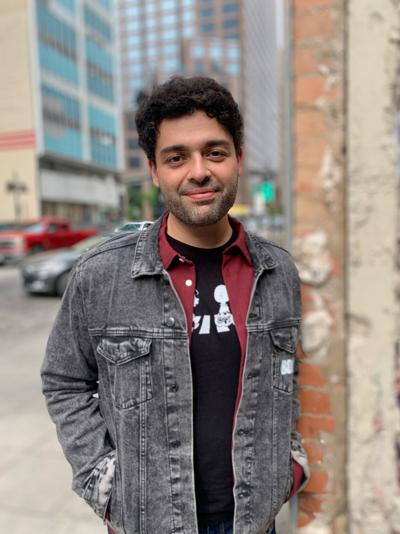For 178 years, the Smithsonian Institution and its 21 museums, 21 libraries, 14 education and resource centers, National Zoo, and other affiliates have been responsible for chronicling and displaying our nationŌĆÖs existence to enlighten past, present and future generations.
The federally and privately funded organization has a responsibility to detail our countryŌĆÖs journey, from its beauty and majesty to its ugliness and struggles. But just as important as it is to show and tell the nationŌĆÖs history, the SmithsonianŌĆÖs displays have the power to unite, challenge, inspire, educate and evoke empathy.
Failure to fully convey the complexities of the nationŌĆÖs experiences does a disservice to all Americans. The Trump administration disagrees.
The language in the presidentŌĆÖs Smithsonian executive order, which calls for removing what it deems ŌĆ£improper ideologyŌĆØ from the institutionŌĆÖs museums and parks, is a deliberate effort to promote a whitewashed version of our complex history. Trump says the order is an attempt to ŌĆ£restore sanity and truth to American historyŌĆØ so that individuals arenŌĆÖt ŌĆ£subjected to ideological indoctrination or divisive narratives that distort our shared history.ŌĆØ
People are also reading…
The exhibits featured throughout all Smithsonian properties ŌĆö carefully curated by experts and historians ŌĆö offer artifacts, documents and artwork that present the American experience and teach us about the history of our Earth.
Does that sound like divisiveness, or is it ŌĆ£the increase and diffusion of knowledge,ŌĆØ which the Smithsonian states is its purpose?
Unsurprisingly, the White House cited The National Museum of African American History and Culture and the forthcoming American WomenŌĆÖs History Museum as examples of why the institution needs saving. The words ŌĆ£African American,ŌĆØ ŌĆ£cultureŌĆØ and ŌĆ£womenŌĆØ seem to be triggering to this administration. Across agencies, references to race, gender and sexual orientation have been removed from government websites.
Some subject matter, including conversations around racism, identity, sexism and classism seems to make many people, including politicians and individuals with corporate interests, uncomfortable. Good. We canŌĆÖt go back and change the darkest parts of U.S. history, but we should strive not to repeat them. Leaning into that discomfort, which can serve as a reminder of what should not be happening, is a good place to start.
As a multiracial American ŌĆö of Indian, Puerto Rican and Italian descent ŌĆö family members from all three of my cultures were part of the American experience, but none were present on this continent 250 years ago when the nation began. Does that mean my story doesnŌĆÖt qualify as a true American tale? Or is it not as important as the White Anglo-Saxon Protestant saga?
Many Trump supporters take offense to any allusion that the president is racist. This has nothing to do with race, they may say, it is about making America great again. But this is why learning our nationŌĆÖs full history is important ŌĆö because the countryŌĆÖs past is filled with examples of laws and policies that sanctioned the erasure of groups of people under the guise of making America ŌĆ£great.ŌĆØ
The U.S. is its best self when it tries to right those wrongs. I am the result of historical governmental acts that have supported and welcomed outsiders to contribute to our land with the promise of American greatness. That promise was and continues to be realized despite some opinions. But progress comes with growing pains, and we canŌĆÖt just erase parts of recorded history we disagree with.
IŌĆÖve spent most of my career working for nonprofits that support the exposure of art and history for various groups not always represented in mainstream American culture. Firsthand, IŌĆÖve witnessed minds being opened, prejudices dissipated and new conversations fostered. IŌĆÖve also seen setbacks when politicians, board members and powerful influencers impose their personal beliefs onto an organization and subsequently oppress voices in the process.
If the Trump administrationŌĆÖs executive order is determined to restore its parks and museums to narratives that ŌĆ£remind Americans of our extraordinary heritage, consistent progress toward becoming a more perfect Union, and unmatched record of advancing liberty, prosperity, and human flourishing,ŌĆØ then the president must not erase our imperfections. That would turn U.S. history into something almost similar to an unregulated Wikipedia page, where an unaccredited contributor ŌĆö disinterested in accuracy ŌĆö edits, deletes and revises the narrative.
Our flaws are just as crucial to ensuring that liberty and justice are truly provided for all. If the narrative is narrowed down to speak only for a portion of Americans, then we are removing the opportunity to challenge and question our progress.












